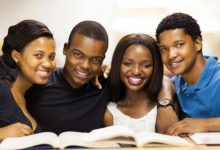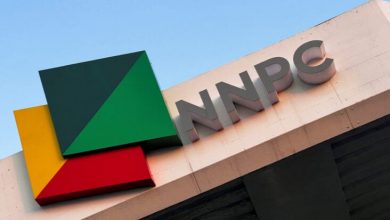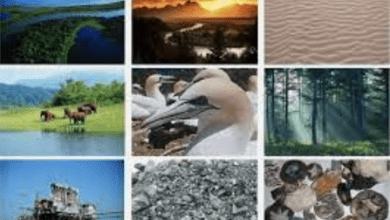
The Role Of Government In Nigeria’s Economy
The Role Of Government In Nigeria Economy – The Nigerian government is a major player in the Nigerian economy through its ownership and management of public enterprises. A typical example is the Nigerian National Petroleum Corporation (NNPC) which is a major player in the nation’s oil and gas sector. Others include Nigeria Trust Fund (NTF), the CBN, Public educational institutions, Federal Inland Revenue Service (FIRS), the Nigerian Ports Authority (NPA), and Nigeria Deposit Insurance Corporation (NDIC) to mention a few. Through these institutions, the government generates revenue through taxes and other sources, which it uses to fund public programs and services. The Role Of Government In Nigeria Economy
Thus, the government of Nigeria plays a significant role in the country’s economy. It is responsible for creating and implementing economic policies, regulating and overseeing the financial sector, and providing public goods and services. However, the government also faces challenges in managing the economy, such as corruption, inadequate infrastructure, and a reliance on oil exports.
👉 Relocate to Canada Today!
Live, Study and Work in Canada. No Payment is Required! Hurry Now click here to Apply >> Immigrate to CanadaRead Also: Role Of NEMA In Nigeria
In recent years, the Nigerian government has made efforts to diversify the economy and reduce its reliance on oil, including through initiatives to promote the agricultural and manufacturing sectors. This paper thus elaborately explains the role of government in Nigeria’s economy.
Overview of Nigeria’s Economy
Economy is a system that involves the production, distribution, and consumption of goods and services in a society. It is the way a society organizes the production, distribution, and consumption of these goods and services, and the ways in which people, businesses, and governments interact in this process.
The Nigeria economy is the economic system of Nigeria, which is a country in West Africa. It is the largest economy in Africa, with a gross domestic product (GDP) of over $450 billion in 2020. The Nigeria economy is primarily driven by the production and export of oil, which accounts for over 90% of the country’s export revenues.
The Nigeria economy faces a number of challenges, including corruption, high inflation, inadequate infrastructure, and high levels of unemployment, particularly among youth. The government has implemented a number of economic reforms and policies in recent years to address these challenges and promote economic growth and development. JAMB Portal
Read Also: The Role of Government in Business in Nigeria
The Nigerian economy is diverse and complex, with various sectors contributing to its overall growth and development. Below are the types of economy in Nigeria: Information Guide Nigeria
- Agriculture
- Oil and Gas
- Manufacturing
- Services
- Tourism
The Nigerian Government And The Nigeria Economy
The government plays a significant role in shaping the direction of Nigeria’s economy. It sets economic policies, including fiscal and monetary policies, that impact the level of government spending, taxes, and interest rates, as well as the regulation of industries and businesses.
👉 Relocate to Canada Today!
Live, Study and Work in Canada. No Payment is Required! Hurry Now click here to Apply >> Immigrate to CanadaIn addition to setting economic policies, the government is also responsible for providing infrastructure, such as roads, airports, ports, and utilities, which are essential for economic development. It can also promote private sector development through initiatives such as tax breaks, regulatory reform, and access to finance.
The government also has a responsibility to provide social services, such as healthcare, education, and social security, which can improve the well-being of citizens and support economic development. Additionally, it plays a crucial role in maintaining law and order, which is essential for a stable and conducive business environment. This includes efforts to combat crime, terrorism, and corruption, as well as maintaining the rule of law.
Read Also: The Role Of Government In Agriculture In Nigeria
Roles Of Government In Nigeria Economy?
The government of Nigeria plays a crucial role in the country’s economy. Here are seven key roles that the government plays in the Nigerian economy:
1. Regulation:
The government is responsible for regulating various sectors of the economy, such as the financial sector, the oil and gas industry, and the telecommunications sector. This helps to ensure that these sectors operate efficiently and fairly, and that consumers are protected from exploitation. NYSC Portal
2. Taxation:
The government collects taxes from individuals and businesses in order to fund public services, such as healthcare, education, and infrastructure. Taxes also play a role in redistributing wealth, as they are used to finance social welfare programs and other initiatives that benefit the less well-off.
3. Infrastructure Development:
The government is responsible for building and maintaining infrastructure, such as roads, bridges, ports, and airports. This is crucial for the functioning of the economy, as it allows goods and services to be transported efficiently and enables businesses to operate effectively.
Read Also: Roles Of Traditional Rulers In Nigeria
4. Education:
The government is responsible for providing education to citizens, which is essential for the development of human capital and the growth of the economy. The government also plays a role in regulating and funding higher education institutions. Good Morning Love Message
5. Monetary Policy:
The Central Bank of Nigeria is responsible for implementing monetary policy, which is the management of the money supply and interest rates in the economy. This helps to maintain price stability and support economic growth.IMF growth projection shows we are doing something right – Emefiele
6. Industrial Policy:
The government can influence the development of different industries through the use of industrial policy. This can involve providing subsidies, tax breaks, or other incentives to encourage the growth of certain sectors.
7. Trade Policy:
The government is responsible for negotiating trade agreements with other countries and for regulating the import and export of goods and services. This helps to ensure that Nigeria’s economy is integrated with the global economy and that domestic industries are protected from unfair competition.
8. Promoting Private Sector Development:
The government can promote private sector development through initiatives such as tax breaks, regulatory reform, and access to finance. This can help to create jobs and stimulate economic growth.
9. Providing Social Services:
The government has a responsibility to provide social services, such as healthcare, education, and social security, which can improve the well-being of citizens and support economic development.
10. Maintaining Law and Order:
The government plays a crucial role in maintaining law and order, which is essential for a stable and conducive business environment. This includes efforts to combat crime, terrorism, and corruption, as well as maintaining the rule of law. How I once involved Bola Ajibola on Bakassi – Segun Showunmi
Read Also: The Role Of Judiciary In The Implementation Of Law In Nigeria
Conclusion,
The Nigerian economy is diverse and complex, with various sectors contributing to its overall growth and development. The agriculture, oil and gas, manufacturing, service, and tourism sectors are all important to the economy and play a significant role in its development. The government is actively working to promote the growth and development of these sectors through various initiatives and policies.
The history of Nigeria’s government has been marked by a number of significant events and changes. From the pre-colonial period, through the colonial and post-independence eras, the country has undergone many transformations, and is still working to overcome the challenges it faces today. Romantic Love Messages
Check JAMB RESULT
Check and Confirm: How much is Dollar to Naira






